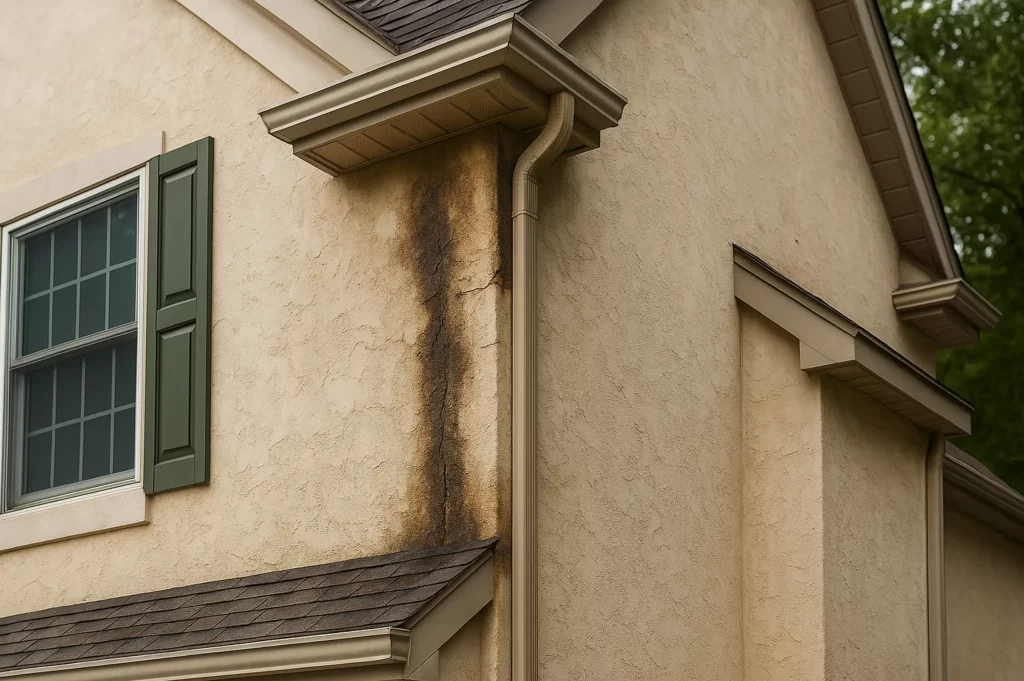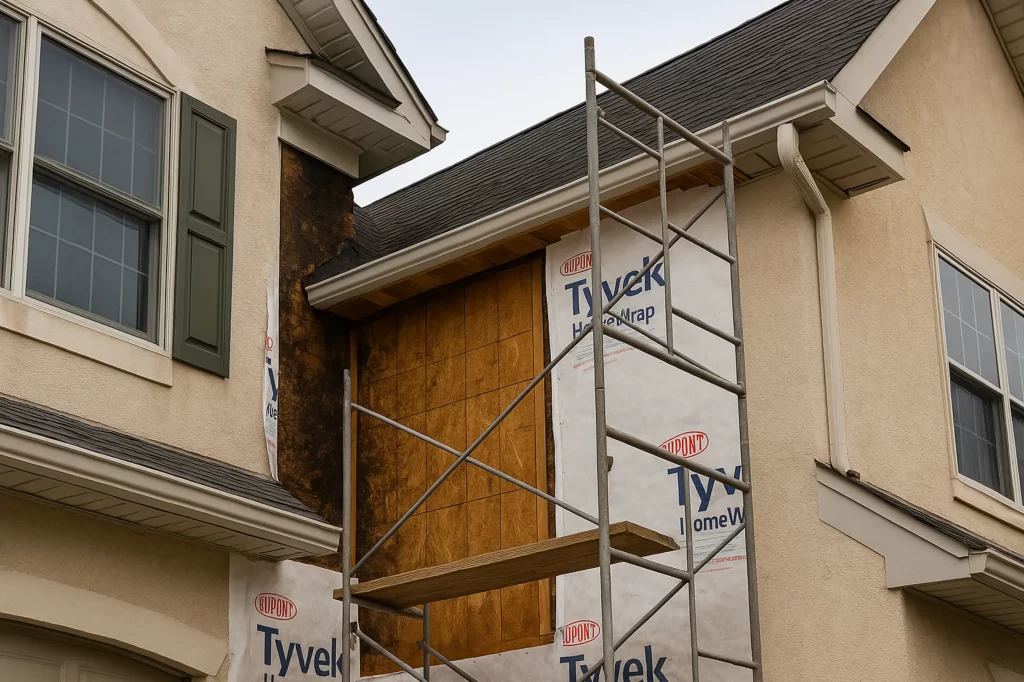Philadelphia-Area Structural Insight & Homeowner Guidance
In the Greater Philadelphia region — especially in suburban communities like Newtown, Yardley, Doylestown, and the Main Line — stucco-clad homes are everywhere. They offer a clean, traditional aesthetic and, when properly installed and maintained, can last decades. However, a growing number of homeowners are discovering costly stucco damage and hidden mold only after listing their home for sale — often too late to avoid serious financial and health consequences.
Why This Is a Hot-Button Issue in the Philly Metro Area
Over the last decade, thousands of homes built between the 1980s and early 2000s in Southeastern PA and South Jersey have been found to have improperly installed stucco systems. These homes often lack proper drainage planes, flashing, or weep screeds, which are essential for allowing moisture to escape. Instead, water gets trapped behind the walls, quietly causing rot, mold, and structural damage — often for years before any visible signs appear.
Over the last decade, thousands of homes built between the 1980s and early 2000s in Southeastern PA and South Jersey have been found to have improperly installed stucco systems. These homes often lack proper drainage planes, flashing, or weep screeds, which are essential for allowing moisture to escape. Instead, water gets trapped behind the walls, quietly causing rot, mold, and structural damage — often for years before any visible signs appear.
When sellers go under contract and the buyer’s inspector brings in a stucco testing firm or structural engineer, that’s often when the hidden nightmare is exposed.


The Risks of Waiting Until You List Your Home
Deals fall through: Buyers walk away or demand $50,000–$100,000+ in credits or remediation before settlement. Insurance doesn’t cover it: Stucco damage is usually classified as a construction defect, not a sudden incident. Health risks emerge: Mold buildup, especially black mold, can pose serious respiratory hazards — especially for children or seniors. Reputation damage: A failed inspection becomes part of a home’s history, making it harder to sell in the future even after repairs.
Deals fall through: Buyers walk away or demand $50,000–$100,000+ in credits or remediation before settlement. Insurance doesn’t cover it: Stucco damage is usually classified as a construction defect, not a sudden incident. Health risks emerge: Mold buildup, especially black mold, can pose serious respiratory hazards — especially for children or seniors. Reputation damage: A failed inspection becomes part of a home’s history, making it harder to sell in the future even after repairs.
How to Be Proactive Instead
Being proactive can save money, time, and major headaches. Here’s how:
Being proactive can save money, time, and major headaches. Here’s how:
- Schedule a non-invasive stucco inspection: Infrared and moisture meter testing can detect problem areas behind the surface.
- Have a structural engineer assess damage: If rot or framing issues are suspected, an engineer can provide a professional report to guide proper remediation.
- Get remediation estimates on your own timeline: This puts you in control of contractor selection and pricing — not the buyer.
- Correct issues before market exposure: A clean, recent inspection report can actually increase buyer confidence and home value.
Who Should Take Action Now?
- Homeowners planning to sell in the next 1–3 years
- Owners of stucco homes built between 1985 and 2005
- Anyone seeing hairline cracks, staining, or bubbling in exterior stucco
- Those experiencing musty odors or unexplained indoor humidity
Let Structural Professionals Help
At Structure Professionals, we’ve helped hundreds of local homeowners and realtors identify, diagnose, and plan for stucco-related structural issues. Our team understands the building codes, weather conditions, and construction quirks unique to this region — and we work quickly and clearly to give you peace of mind.
At Structure Professionals, we’ve helped hundreds of local homeowners and realtors identify, diagnose, and plan for stucco-related structural issues. Our team understands the building codes, weather conditions, and construction quirks unique to this region — and we work quickly and clearly to give you peace of mind.
Don’t wait until a home inspection kills your sale. Get ahead of the issue now — and protect your investment, your health, and your timeline.

Comments are closed for this article!